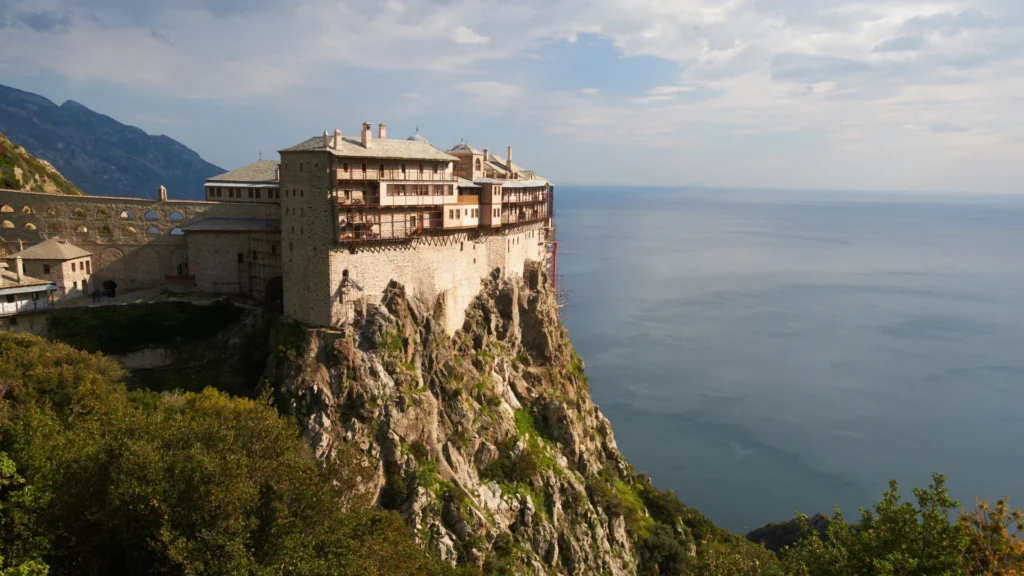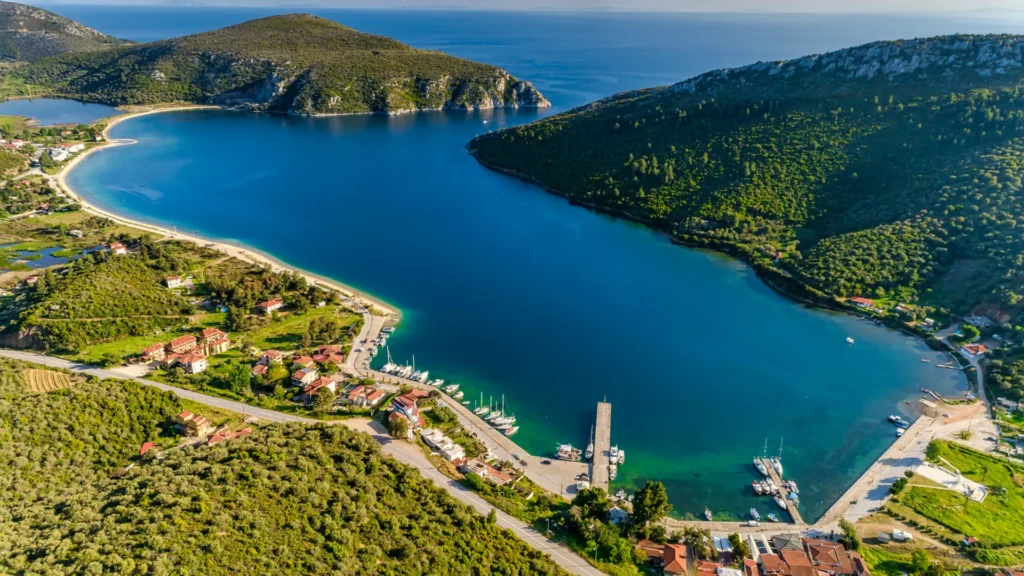Corinth was strategically situated for trade and communication
The city-state of Corinth was strategically situated for trade and communication and stood out in ancient Greece with its economic prosperity, architectural innovations, and pragmatic diplomacy. Unlike Sparta’s martial focus or Athens’ intellectual pursuits, Corinth thrived as a bustling trade hub. Its architectural legacy, notably the Corinthian column, continues to influence modern design. Through alliances and pragmatism, Corinth played a role in the dynamic Peloponnesian power struggles.

Corinth, strategically situated for trade and communication
Strategic Geographical Position
Corinth, strategically positioned on the narrow isthmus connecting mainland Greece and the Peloponnese, was renowned for its exceptional geographic advantage. Its location facilitated trade and communication between the Aegean and Ionian Seas, making Corinth a vital maritime crossroads.
Economic Prosperity and Trade Mastery
Unlike Sparta’s martial focus or Athens’ intellectual pursuits, Corinth’s distinctiveness lay in its economic prowess. The city thrived as a bustling trade hub, fostering a culture of commerce and entrepreneurship. Its proximity to both the sea and fertile agricultural lands ensured a diversified economy.
Corinthian Architecture and Innovation
Corinth’s architectural achievements were another distinguishing aspect. The Corinthian column, characterized by ornate and intricate capitals, exemplified the city’s artistic excellence. Notably, Corinth pioneered terra cotta roof tiles, influencing architectural practices across Greece. These innovations underscored the city’s commitment to creativity and artistic expression.
Relations with Other City-States
Corinth’s relations with other city-states were marked by pragmatism and alliances. While Sparta and Athens were often embroiled in ideological conflicts, Corinth sought to maintain stability through diplomatic engagement. It formed alliances with different states, even if their goals and interests occasionally diverged.
Corinthian War and Decline
The Corinthian War (395–387 B.C.), a conflict involving Corinth, Sparta, Athens, and Thebes, highlighted the city’s complex role in the Peloponnesian power dynamics. Corinth initially aligned with Sparta but shifted allegiances, seeking Athenian support against Sparta’s hegemony. The city’s involvement in this war marked a pivotal moment in its history.
Enduring Legacy and Influence
Corinth’s legacy extended beyond its time as a thriving city-state. Its architectural innovations, including the Corinthian column, continue to inspire modern architecture. The city’s economic significance as a trade nexus exemplified its practical approach to diplomacy and stability. While not as prominent as Athens or Sparta, Corinth’s distinct economic strength and architectural contributions ensured its lasting impact on the fabric of ancient Greek civilization.
More History

Pericles
Pericles, an influential statesman in ancient Greece, championed democracy and cultural flourishing. He guided Athens during its Golden Age, leaving a profound legacy in politics, art, and philosophy.

Thessalonike
Thessalonike, a historic city in Greece, boasts a rich heritage influenced by diverse cultures. It thrives as a vibrant modern metropolis while preserving its ancient roots and architectural treasures.

Hestia
Hestia, one of the twelve Olympian gods in ancient Greece, was the guardian of the hearth and home. She symbolized warmth, family unity, and the sacredness of domestic life.
